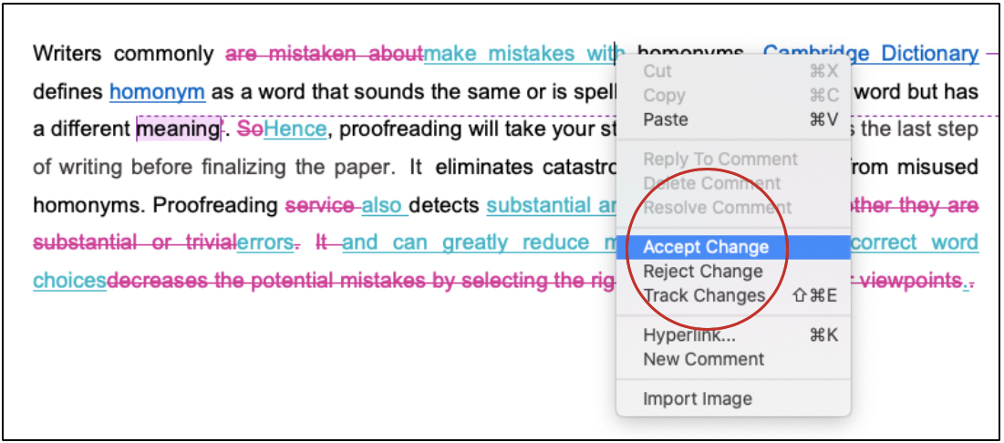A thesis statement is the main academic argument of the thesis that distills the central idea of the study informing the readers about your stance on your thesis topic and is therefore an integral part of writing the thesis. When writing a thesis statement, there are several contentions regarding the right approach. And understandably so, for there are no definite writing rules. But there certainly are writing best practices. In this article, we will look at some of these best practices and how you can leverage them to write a formidable thesis statement. But prior to that, let’s understand what a thesis statement is.

This brief guide discusses how to write a thesis statement for a thesis or dissertation. To give you an opportunity to practice proofreading, we have left a few spelling, punctuation, or grammatical errors in the text. See if you can spot them! If you spot the errors correctly, you will be entitled to a 10% discount.
A thesis statement is the main academic argument of the thesis that distills the central idea of the study informing the readers about your stance on your thesis topic and is, therefore, an integral part of writing the thesis. When writing a thesis statement, there are several contentions regarding the right approach, and understandably so, for there are no definite writing rules. But there are certainly best-writing practices. In this article, we will look at some of these best practices and how you can leverage them to write a formidable thesis statement.
As mentioned already, a thesis statement is the main academic argument of the thesis that distills the central idea of the study informing the readers about your stance on your thesis topic. A thesis statement is considered an integral part of writing the thesis.
Simply stated, a thesis statement is the abridged version of your thesis paper. It relays to the readers the crux of your entire thesis document, provides a premise for the contents of your thesis, and ushers them around your interpretation of the thesis topic.
When it comes to its length, no statute defines how long a thesis statement should be. Typically, one or two sentences will do the job satisfactorily. However, there are cases when you might need to include a more comprehensive statement. In such cases, inquiring with your supervisors can help.
As for the position of a thesis statement, it should be placed at the beginning of the document, particularly after the introductory paragraph. This is so that the readers can get an idea of what is lying ahead for them.
A thesis statement encapsulates your entire thesis in a few words. As such, you need to keep in mind some writing guidelines to compose a strong thesis statement.
A strong thesis statement presents an argument in such a manner that the readers are urged to ponder over it. If your thesis statement looks somewhat like this, “Christians do not like metal music,” then chances are readers would hardly pay any mind to it.
Your thesis statement should make a claim and force the readers to consider your take on a subject matter. Hence, a better version of the earlier example would be: Many Christians presume metal music to be evil and condemn its listeners, but no definite proof exists signifying metal music’s diabolical nature.
The goal of writing a thesis statement is to tell the readers what the thesis is all about. Thus, when writing, precision is the key. You want to address the very question your thesis is answering.
However, this doesn’t mean that you should entirely rule out the mention of secondary elements of your thesis from the thesis statement. You don’t have to explicitly mention what your thesis is “also” talking about but do try to incorporate allusions.
Writing a compelling thesis statement calls for using language that doesn’t exude, actively or passively, any sort of uncertainty. It should tell the readers that you are confident about the arguments you are presenting and that you have sufficient data to back them. This also implies that you should rule out the usage of any superlatives as they make your thesis statement seem less academic and credible.
Your thesis statement is essentially an argument that you are placing before the readers to peruse. You might be tempted to write a factual statement as it doesn't take as much creative effort to write. But, doing so will only work toward making your thesis seems boring. To keep things engaging, write a statement that makes a gripping assertion without being overly controversial.
The ideal way to craft a thesis statement is to create a rough draft first. Having a rough draft will enable you to finalize the direction of your thesis. You can then gradually fine-tune the draft as your thesis document approaches its completion. In short, a thesis statement should guide your writing process.
Thesis writing comes under the scope of academic writing. As such, it requires formal language and is devoid of grammatical and contextual errors. However, not every academic is well versed in writing such language.
One way to deal with this dilemma is to approach professional editing and proofreading services. These services possess a host of experts who know the ins and outs of academic writing and will fine-tune your document’s language to the highest standards.
For any academic writer, knowing how to write a thesis statement that accentuates the kernel of their thesis document is crucial. But arbitrarily coming up with a statement will only be detrimental to the overall quality of a thesis. Thus, adopting a step-by-step writing approach and inculcating yourself with the right guidelines is the way to go.
Best Edit & Proof expert editors and proofreaders focus on offering manuscripts with proper tone, content, and style of academic writing, and also provide an upscale editing and proofreading service for you. If you consider our pieces of advice, you will witness a notable increase in the chance for your research manuscript to be accepted by the publishers. We work together as an academic writing style guide by bestowing subject-area editing and proofreading around several categorized writing styles. With the group of our expert editors, you will always find us all set to help you identify the tone and style that your manuscript needs to get a nod from the publishers.

You can also avail of our assistance if you are looking for editors who can format your manuscript, or just check on the particular styles for the formatting task as per the guidelines provided to you, e.g., APA, MLA, or Chicago/Turabian styles. Best Edit & Proof editors and proofreaders provide all sorts of academic writing help, including editing and proofreading services, using our user-friendly website, and a streamlined ordering process.
Visit our order page if you want our subject-area editors or language experts to work on your manuscript to improve its tone and style and give it a perfect academic tone and style through proper editing and proofreading. The process of submitting a paper is very easy and quick. Click here to find out how it works.
Our pricing is based on the type of service you avail of here, be it editing or proofreading. We charge on the basis of the word count of your manuscript that you submit for editing and proofreading and the turnaround time it takes to get it done. If you want to get an instant price quote for your project, copy and paste your document or enter your word count into our pricing calculator.
Contact us to get support with academic editing and proofreading. We have a 24/7 active live chat mode to offer you direct support along with qualified editors to refine and furbish your manuscript.
Follow us on Twitter, LinkedIn, Facebook, Instagram, and Medium.
For more posts, click here.
How to Determine Variability in a Dataset
14.10.2023
How to Determine Central Tendency
19.02.2023
How to Specify Study Variables in Research Papers?
14.01.2023
Population vs Sample | Sampling Methods for a Dissertation
14.01.2023
7 Issues to Avoid That may Dent the Quality of Thesis Writing
18.12.2022
How to Ensure the Quality of Academic Writing in a Thesis and Dissertation?
04.12.2022
How to Define Population and Sample in a Dissertation?
03.12.2022

Some students find it difficult to understand and write error-free coursework papers. So, it requires pouring multiple skills, attention, and energy to frame impressive coursework. Here we present few such tips for flawless coursework.
Continue Reading
We may have qualitative, quantitative, and mixed methods in dissertations. This blog will elaborate on quantitative dissertations, qualitative dissertations, and mixed methods dissertations by addressing their similarities and differences.
Continue Reading
When you deal with experiments, you investigate the causal relationship between variables. What you fundamentally do is manipulate one or more than one independent variable (x) to determine their effect on dependent variables (y).
Continue Reading